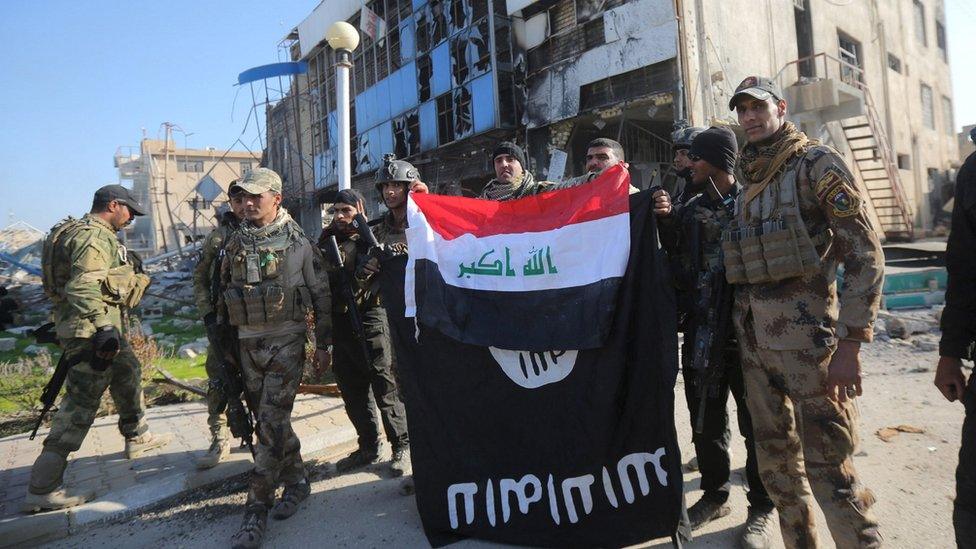Ramadi victory boosts Iraqi forces, but at a price
- Published
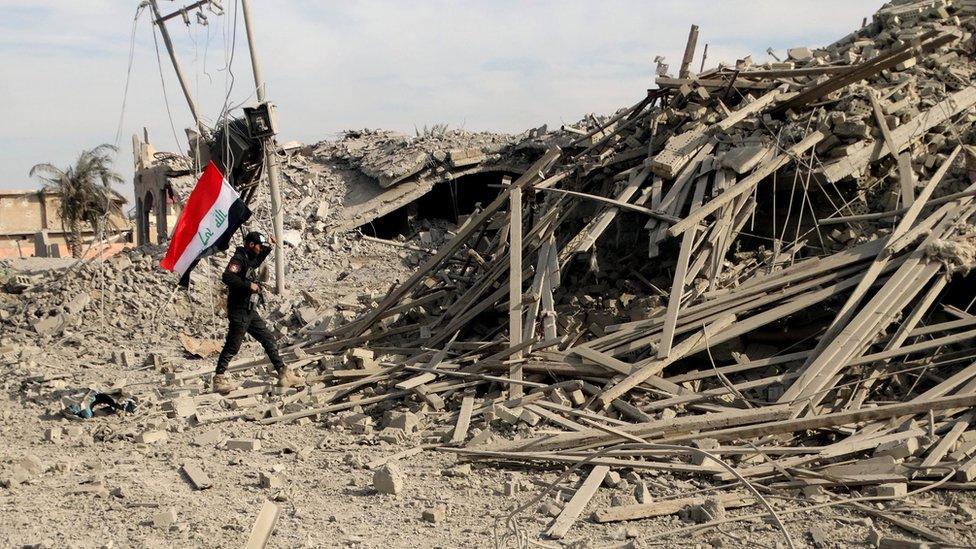
Much of Ramadi has been reduced to rubble
The recapture of Ramadi by Iraqi forces from Islamic State fighters has come at a high cost but may pave the way for future military victories, writes the BBC's Thomas Fessy.
We have heard the word "victory" many times this week. The Iraqi authorities certainly want it to be a part of their motto for the New Year. The recapture of Ramadi has given them the morale lift they badly needed to start 2016.
But among the rubble of what is left of the city, victory is a word that does not echo very far. Perhaps that's because of the continuing sound of gunfire and mortars - or is it the roar of warplanes overhead followed by the loud blast of their strikes?
Yes, the Iraqi flag is flying over the city centre again but several hundred Islamic State (IS) militants are still able to do harm in their desperate resistance.
Ramadi was severely damaged during heavy fighting last year, before IS fighters forced Iraqi forces to abandon their positions and equipment in May. But the intensity of the battle last week devastated it. It is too early to give a precise figure but some military officials suggest that up to 80% of the city has been destroyed.
We drove through the southern neighbourhoods where the offensive began. The walls of the provincial university's colourful buildings are pierced with gigantic holes. Some are now so charred, so damaged, that they are close to collapse.
Watch: How the battle for Ramadi unfolded
Damage to Ramadi hampers return of those displaced
We pushed through the normally densely populated neighbourhood of Tamim, the largest in the city. The concrete-block houses and high-rises here were either blown up and reduced to rubble, partially destroyed or riddled with bullets. The bridges connecting this sprawling part of Ramadi to the heart of town were cut in half: Islamic State fighters blew them up to slow the advance of Iraqi security forces.
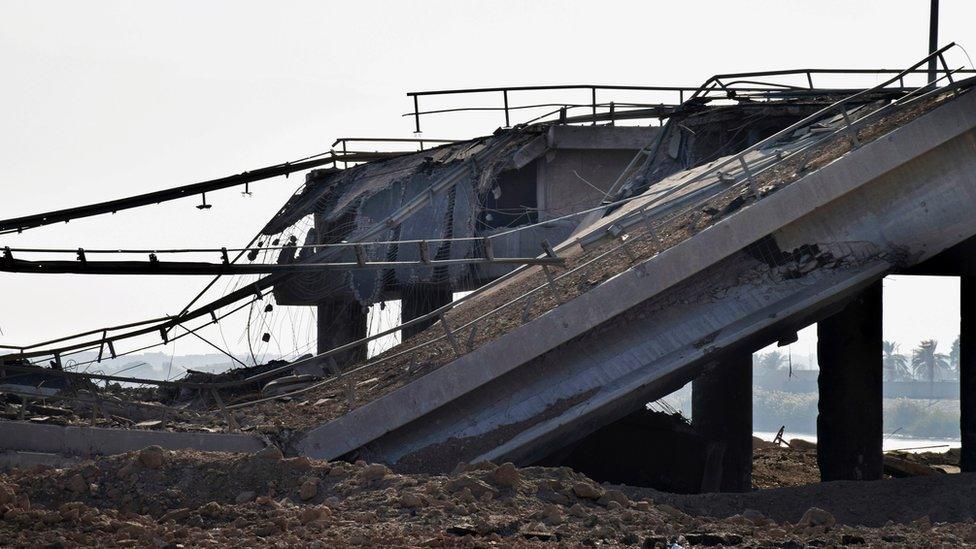
Islamic State destroyed bridges in to the city, but the Iraqi army built new ones
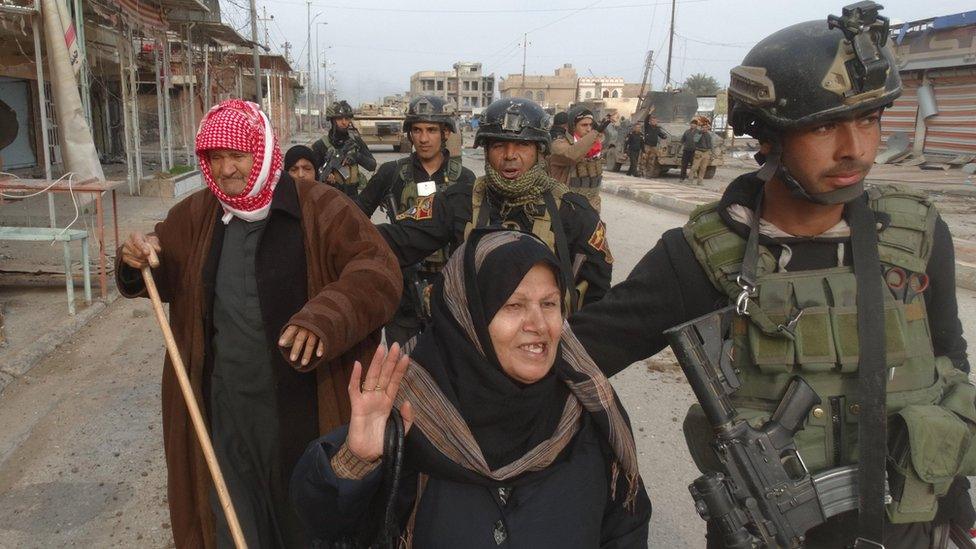
Most civilians had already fled Ramadi before the Iraqi government offensive began
Massive chunks of concrete can still be seen down in the Euphrates River - they look like sunken boats. Further west, we pass an eerie playground, the swings and slides caught up in the crossfire; the yellow, red, blue and green structures torn apart. Recreation is long gone in Ramadi.
The city largely emptied out in the months preceding the latest offensive but thousands of people were still there when the assault began. Aid workers say only about 60 families have been taken to a nearby town, where they've joined the tens of thousands who had already fled.
Many others have apparently gone into hiding, barricading themselves at home in the north-eastern areas which are still under IS control. There's speculation about whether they will be able to escape and whether there will be reprisals against those locals who chose to co-operate with Islamic State.
Major challenge
It will take quite some time before this city is fully recaptured and cleared of the bombs and booby-traps which have been buried underground. Iraqi forces cleared no less than 300 explosive devices over 150m (160 yards) before they could reach the former provincial government compound. Once it is finally secured, Ramadi will be handed over to Sunni tribal fighters and to local and federal police. That, too, will be a major challenge.
But there is something for the Iraqi security forces to cheer about. They have shown abilities that they clearly lacked in previous battles. Units which led this latest offensive were trained by the US over the past months and it seems that at last, it's paying off.
Troops were able to call in airstrikes from coalition forces and their own warplanes. They used a floating bridge to cross the river and surprise the jihadis in their last stronghold. That bridging operation was an advanced military technique that has not been seen in this region in decades.
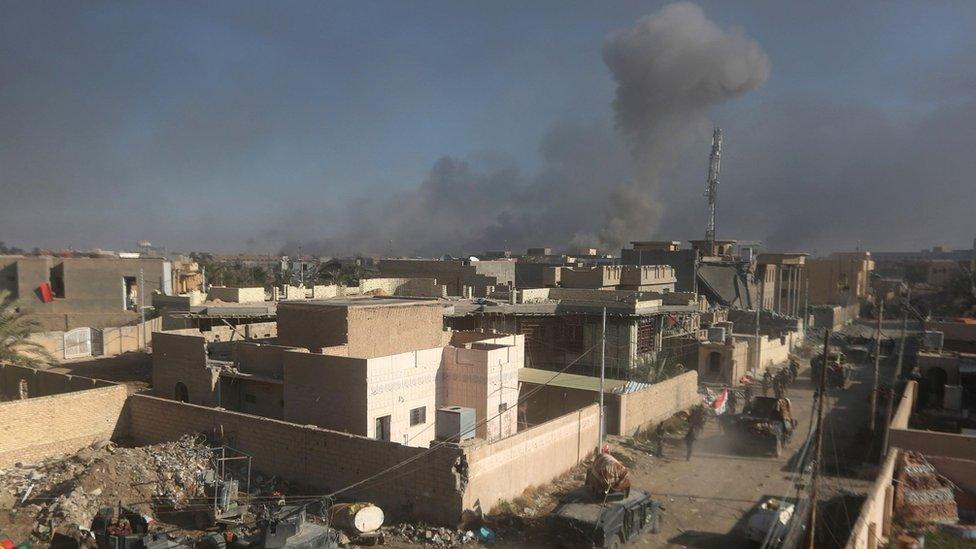
Iraqi forces worked in co-ordination with coalition forces carrying out air strikes around Ramadi
Devastating air strikes may have done much of the job, but their targets were mainly spotted by troops operating on the ground, close to IS fighters and their snipers. Will these Iraqi soldiers become the boots on the ground that will eventually make a difference here? It is too soon to tell, but their success in Ramadi will restore part of the broken trust in their capacity to defend this nation.
In the fight against Islamic State in Iraq, it is their first real medal. The previous battle awards went to Shia militiamen or the Kurdish Peshmergas.
We will hear the word "victory" again and again in the coming days here. But the devastation in Ramadi means that the people who lived here will have nowhere to go home to for months, if not years, to come.
This battle has shown what it costs to damage Islamic State: utter destruction and mass displacement of people.
2016 will be a year of more confrontation and even tougher battles. What we are seeing now is the start of a long war at the end of which victory may be declared on a pile of rubble.
- Published30 December 2015
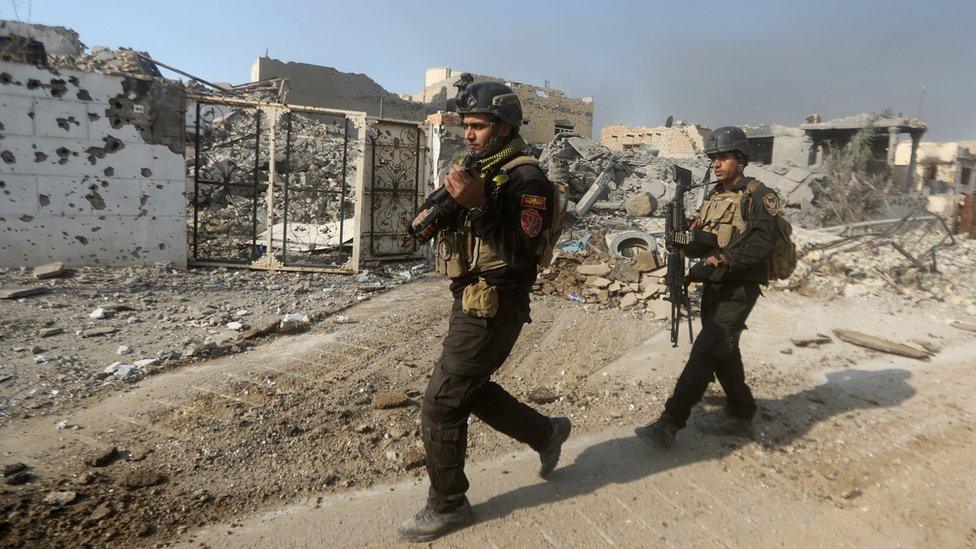
- Published29 December 2015
